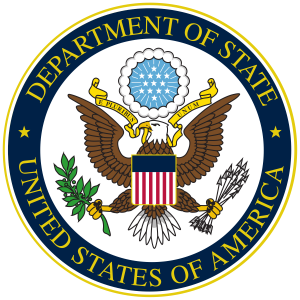By Sami Zaptia.

London, 28 June 2021:
The section in the U.S. State Department ‘‘2021 Fiscal Transparency Report’’ on Libya says internal political and civil conflict has prevented the Libyan government from fully implementing its budget processes, which has adversely affected fiscal transparency and the country’s operations.
It continues, ‘‘An end-of-year budget report was available online. Only limited information on debt obligations, including state-owned enterprise debt, was publicly available. Earnings and some financial allocations to the National Oil Corporation (NOC), a major state-owned enterprise, were included in the budget. Allocations to another major state-owned enterprise, the General Electricity Company of Libya, were not explicitly outlined in the budget.
Publicly available budget documents were not substantially complete and lacked sufficient detail. Audit reports for large state-owned enterprises, such as the NOC, were not publicly available, although the NOC is independently engaged in efforts to boost its transparency by digitizing its operations and improving its corporate governance structure. Information regarding expenditures to support executive offices was not public. Military and intelligence budgets were subject to limited civilian oversight.
Libya does not yet fully use internationally accepted accounting principles. The supreme audit institution is not independent according to international standards. It may have audited some of the government’s accounts but did not make a public report available within a reasonable period of time.
The criteria and procedures for awarding contracts and licenses for natural resource extraction were outlined in law or regulation and generally appear to have been followed in practice. Basic information on natural resource extraction awards was public.
The sovereign wealth fund, the Libyan Investment Authority (LIA), does not disclose its source of funding or general approach to withdrawals. However, during the review period, the UN-facilitated audit of the two branches of the Central Bank of Libya began, as did planning for an external audit of the LIA’’.
Finally it concludes that Libya’s fiscal transparency would be improved by:
- publishing complete and reliable budget documents within a reasonable period of time;
- disclosing in its budget documents information on debt obligations, including state-owned enterprise debt and other financial data;
- publishing expenditures to support executive offices;
- establishing a supreme audit institution that meets international standards of independence;
- subjecting military and intelligence budgets to further civilian oversight;
- fully adopting internationally accepted accounting principles;
- making supreme audit institution reports of the government’s executed budget and state-owned enterprises publicly available within a reasonable period of time; and
- ensuring the sovereign wealth fund discloses its source of funding or general approach to withdrawals.






